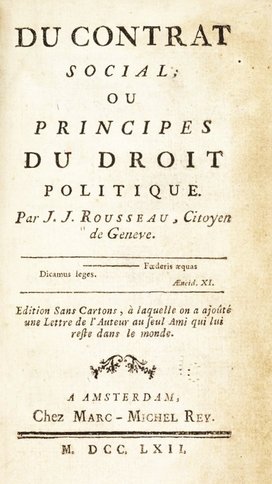The social contract theory was introduced fully by Thomas Hobbes but has its roots with Socrates. John Locke and Jean-Jacques Rousseau are also well known proponents of this theory and influential in political in moral theory in general.¹
Hobbes dictates that a person’s moral and/or political obligations are dependent upon an informal contract or agreement to form the society in which they live. This concept rests about the assumption of Hobbes’ hypothetical State of Nature. In this hypothetical state that preceded government, men are naturally exclusively self interested.¹
There are limited resources and life is completely brutal, with everyone in fear of losing their life and the idea of cooperation impossible. With a government or sovereign, Hobbes posits that “given that men are naturally self-interested, yet they are rational, they will choose to submit to the authority of a Sovereign in order to be able to live in a civil society.”¹
The most important law of nature is that each man must be willing to pursue peace when others are willing to do the same, while retaining the right to pursue war when others do not pursue peace.¹
The social contract is constituted by two distinguishable contracts¹:
- They must agree to establish society by collectively and reciprocally rebounding the rights they had against one another in the State of Nature
- They must imbue some one person or assembly of persons with the authority and power to enforce the initial contract
- If the punishments for breaches of contract are worse than not being able to act however you want, rational men will adjust themselves to morality and justice. Without a sovereign to enforce these punishments, the contract is fruitless.
Reference:
1. Internet Encyclopedia of Philosophy. Social Contract Theroy. Retrieved May 8, 2014, from http://www.iep.utm.edu/soc-cont/
© BrainMass Inc. brainmass.com July 24, 2024, 10:22 am ad1c9bdddf